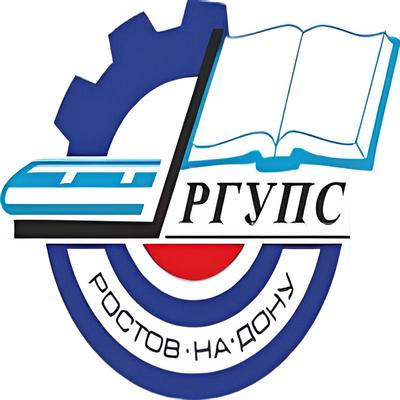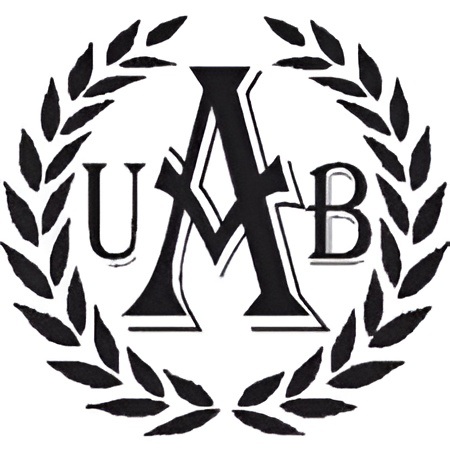Analysis of errors in English verb forms from academic essays by trainees at one of Rwanda Polytechnic (RP) Colleges
DOI:
https://doi.org/10.51867/AQSSR.2.4.1Keywords:
Error Making, Grammatical Theories, Second Language, Verb FormsAbstract
The study of grammatical error-making in academic writing has been an important activity in research, especially for students learning English as a second language. This research paper sought to identify and interpret grammatical errors in verb forms from students’ academic writing tasks. Different grammatical theories were explored, including that of Chomsky's Transformational-Generative Grammar (TGG) and Halliday's Systemic Functional Grammar (SFG), among others. The study employed a descriptive research design with a mixed-method research design where the data collected were analyzed using both quantitative and qualitative methods. The specific objective was to reveal the common grammatical errors made by students in their writings. From 20 teachers and 260 students, by using the Yamane formula, 15 teachers and 133 students were reached to participate in the study sample. Data analysis methods employed were document analysis, deductive thematic analysis, and descriptive statistics. The findings revealed that year-one engineering students at RP Gishari College make grammatical errors in all five English verb forms in their writings. Particularly, it was found that many students make errors in the third person singular form of the present simple (58.78%), whereas the errors in the past participle form were the least (6.10%). This scientific proof of error-making can be used by language educators to help trainees to improve their writing skills. Finally, the study recommended teachers and future researchers develop different teaching techniques that can help students to minimize error-making while writing academically.
References
Aarts, B. (2006). Grammar. In Encyclopedia of Language & Linguistics (pp. 113-115). Elsevier. https://doi.org/10.1016/B0-08-044854-2/04775-1 DOI: https://doi.org/10.1016/B0-08-044854-2/04775-1
Alahmadi, N. (2019). A study of grammatical errors of subject-verb agreement in writing made by Saudi learners. International Journal of English Language and Linguistics Research, 7(6), 48-59.
Alinsunod, J. (2014). A study on common writing errors of engineering students: A basis for curriculum development. European Journal of English Language and Literature Studies, 2(3), 7-15.
Alsher, T. (2021). Error analysis of written essays: Do private school students show better EFL writing performance? International Journal of Research in Education and Science, 3(5), 608-629. https://doi.org/10.46328/ijres.1815 DOI: https://doi.org/10.46328/ijres.1815
Amuzu, E. K., & Asinyor, E. (2016). Errors on Ghanaian students' written English: Is speaking school pidgin English the cause? Ghana Journal of Development Studies, 13(2), 48. https://doi.org/10.4314/gjds.v13i2.3 DOI: https://doi.org/10.4314/gjds.v13i2.3
Dhanapal, C., & Agab, S. N. A. (2023). Writing difficulties among undergraduate Arab students in English language: A case study of King Khalid University. International Journal of Linguistics, Literature and Translation, 6(2), 167-169. https://doi.org/10.32996/ijllt.2023.6.2.21 DOI: https://doi.org/10.32996/ijllt.2023.6.2.21
Falk, Y. N. (2001). Lexical-functional grammar: An introduction to parallel constraint-based syntax. http://ci.nii.ac.jp/ncid/BA53041065
Febriani, T. N. (2022). "Writing is challenging": Factors contributing to undergraduate students' difficulties in writing English essays. Erudita: Journal of English Language Teaching, 2(1), 83-93. https://doi.org/10.28918/erudita.v2i1.5441 DOI: https://doi.org/10.28918/erudita.v2i1.5441
Fengjie, L., Jia, R., & Hongyi, Z. (2016). Grammatical mistakes in college English writing: Problem analysis, reasons and solutions. International Journal of Applied Linguistics and Translation, 2(3), 20-28. https://doi.org/10.11648/j.ijalt.20160203.11 DOI: https://doi.org/10.11648/j.ijalt.20160203.11
Fitria, T. N. (2021). An analysis of regular and irregular verbs in students' essay writing. LLT Journal: A Journal on Language and Language Teaching, 24(1), 276-287. https://doi.org/10.24071/llt.v24i1.2595 DOI: https://doi.org/10.24071/llt.v24i1.2595
Ginting, D., Sulistyo, T., Ismiyani, N., Sembiring, M. J., Asfihana, R., Fahmi, A., Suarniti, G. A. M. R., & Mulyani, Y. S. (2022). English language teacher's multimedia knowledge in teaching using technology. World Journal of English Language, 12(6), 184-192. https://doi.org/10.5430/wjel.v12n6p184 DOI: https://doi.org/10.5430/wjel.v12n6p184
Hamamci, Z., & Hamamci, E. (2018). A case study: Exploring the use of 3rd person singular -s in English in written register. RumeliDE Dil ve Edebiyat Araştırmaları Dergisi, 13, 84-93. https://doi.org/10.29000/rumelide.504253 DOI: https://doi.org/10.29000/rumelide.504253
Irawan, V. A. P., & Syafi'i, M. (2021). Students' errors in the use of present participle in translating simple dialog at the eleventh grade of SMK Taruna Masmur Pekanbaru. Indonesian Journal of Integrated English Language Teaching, 7(1), 12-19. https://doi.org/10.24014/ijielt.v7i1.13771 DOI: https://doi.org/10.24014/ijielt.v7i1.13771
Ismani, Z. A. B., & Simamora, S. (2021). The difficulties facing a student in using participle in sentences. Cendikia: Media Jurnal Ilmiah Pendidikan, 11(2), 97-111. https://doi.org/10.35335/cendikia.v11i2.1670 DOI: https://doi.org/10.35335/cendikia.v11i2.1670
Jama, I. (2022). Common errors of using gerundial and infinitival forms in EFL learners' writing. International Education Studies, 15(6), 127-135. https://doi.org/10.5539/ies.v15n6p127 DOI: https://doi.org/10.5539/ies.v15n6p127
Lee, H. (2018). Grammaticalization of topic-indicating prepositions in the present participle form. Language and Linguistics, 81, 125-148. https://doi.org/10.20865/20188106 DOI: https://doi.org/10.20865/20188106
Ma, X. (2022). Review of the acquisition of third person singular form on Chinese EFL learners. In 2022 3rd International Conference on Language, Art and Cultural Exchange (ICLACE 2022), Luoyang, China. https://doi.org/10.2991/assehr.k.220706.023 DOI: https://doi.org/10.2991/assehr.k.220706.023
Magaba, V. (2023). English writing challenges of first-year students: A case study of a university in the Eastern Cape. Athens Journal of Philology, 10(1), 35-52. https://doi.org/10.30958/ajp.10-1-2 DOI: https://doi.org/10.30958/ajp.10-1-2
Mayaratri, P. (2020). Analysis of verb tenses errors of non-English students' writing. Jurnal Bahasa Lingua Scientia, 12(1), 185-198. https://doi.org/10.21274/ls.2020.12.1.185-198
Mironko, B. K. U. (2013). Students and teachers' views on factors that hinder or facilitate science students in the mastery of English for academic purposes (EAP) in Rwanda higher education [Master's thesis, University of the Western Cape]. https://etd.uwc.ac.za/xmlui/handle/11394/2996
Mitari, M., Anguru, P. U., & Uwamariya, J. (2024). Classification of grammatical errors found in English verb forms from students' academic writing tasks at Gishari Integrated Polytechnic Regional College (IPRC), Rwanda. African Journal of Empirical Research, 5(1), 319-328. https://doi.org/10.51867/ajernet.5.1.31 DOI: https://doi.org/10.51867/ajernet.5.1.31
Nagai, H., Nakazawa, E., & Akabayashi, A. (2022). The creation of the Belmont Report and its effect on ethical principles: A historical study. Bioethics News, 40(2), 157-170. https://doi.org/10.1007/s40592-022-00165-5 DOI: https://doi.org/10.1007/s40592-022-00165-5
Nopinawati, Tuminah, Selong, Y., & Faridha, N. (2020). Analysis of error using simple past tense on recount text class VIII B students of SMP Pelita Ngabang in academic year 2019/2020 Landak District. Udayana Journal of Social Sciences and Humanities (UJoSSH), 4(2), 58-65. https://doi.org/10.24843/UJoSSH.2020.v04.i02.p03 DOI: https://doi.org/10.24843/UJoSSH.2020.v04.i02.p03
Okuyama, Y. (2020). Use of tense and aspect in academic writing in engineering: Simple past and present perfect. Journal of Pan-Pacific Association of Applied Linguistics, 24(1), 1-15. https://doi.org/10.25256/PAAL.24.1.1 DOI: https://doi.org/10.25256/PAAL.24.1.1
Pérez, S. L. (2021). Analysis of subject-verb agreement errors in third person singular verb forms by Spanish university students: A corpus-based study. International Journal of English Linguistics, 11(2), 23-32. https://doi.org/10.5539/ijel.v11n2p23 DOI: https://doi.org/10.5539/ijel.v11n2p23
Pineteh, E. A. (2013). The academic writing challenges of undergraduate students: A South African case study. International Journal of Higher Education, 3(1), 12-21. https://doi.org/10.5430/ijhe.v3n1p12 DOI: https://doi.org/10.5430/ijhe.v3n1p12
Sajid, M., & Siddiqui, J. A. (2015). Lack of academic writing skills in English language at higher education level in Pakistan: Causes, effects and remedies. International Journal of Language and Linguistics, 2(4). [PDF file] file:///C:/Users/Admin/Downloads/20.pdf
Sarkar, S., & Dave, B. G. (2022). Scope of error analysis in English written texts of ESL students: A case study. International Journal of Advanced Engineering Research and Science, 9(11), 86-95. https://doi.org/10.22161/ijaers.911.12 DOI: https://doi.org/10.22161/ijaers.911.12
Suhaili, M. S., & Mohama, M. (2021). English language competency in enhancing technical and vocational education training (TVET) graduates' marketability in the Malaysian workplace: A literature review. Creative Education, 12(8), 1858-1866. https://doi.org/10.4236/ce.2021.128141 DOI: https://doi.org/10.4236/ce.2021.128141
Tembasi, A. (2022). Universities struggle to traverse the language landscape. University World News. https://www.universityworldnews.com/post.php?story=20220824070930699
Twagilimana, I. (2017). Teaching academic writing to first year university students: A case study of feedback practices at the former National University of Rwanda. Rwanda Journal, 2(1). https://doi.org/10.4314/rj.v2i1.6A DOI: https://doi.org/10.4314/rj.v2i1.6A
Watcharapunyawong, S., & Usaha, S. (2012). Thai EFL students' writing errors in different text types: The interference of the first language. English Language Teaching, 6(1), 67-78. https://doi.org/10.5539/elt.v6n1p67 DOI: https://doi.org/10.5539/elt.v6n1p67
Yunita, R., Syarif, H., & Fitrawati. (2017). The ability of the fourth semester students in constructing passive voice in writing explanatory essay: A study at the English Department FBS UNP Padang. English Language Teaching and Research, 1(1). [PDF file] file:///C:/Users/Admin/Downloads/8744-17541-1-SM.pdf
Zhu, M. (2019). The important part of error analysis in second language acquisition. In Proceedings of the 4th International Conference on Humanities Science, Management and Education Technology (HSMET 2019) (pp. 216-220). https://doi.org/10.2991/hsmet-19.2019.45 DOI: https://doi.org/10.2991/hsmet-19.2019.45
Downloads
Published
Issue
Section
License
Copyright (c) 2025 African Quarterly Social Science Review

This work is licensed under a Creative Commons Attribution-NonCommercial 4.0 International License.





















